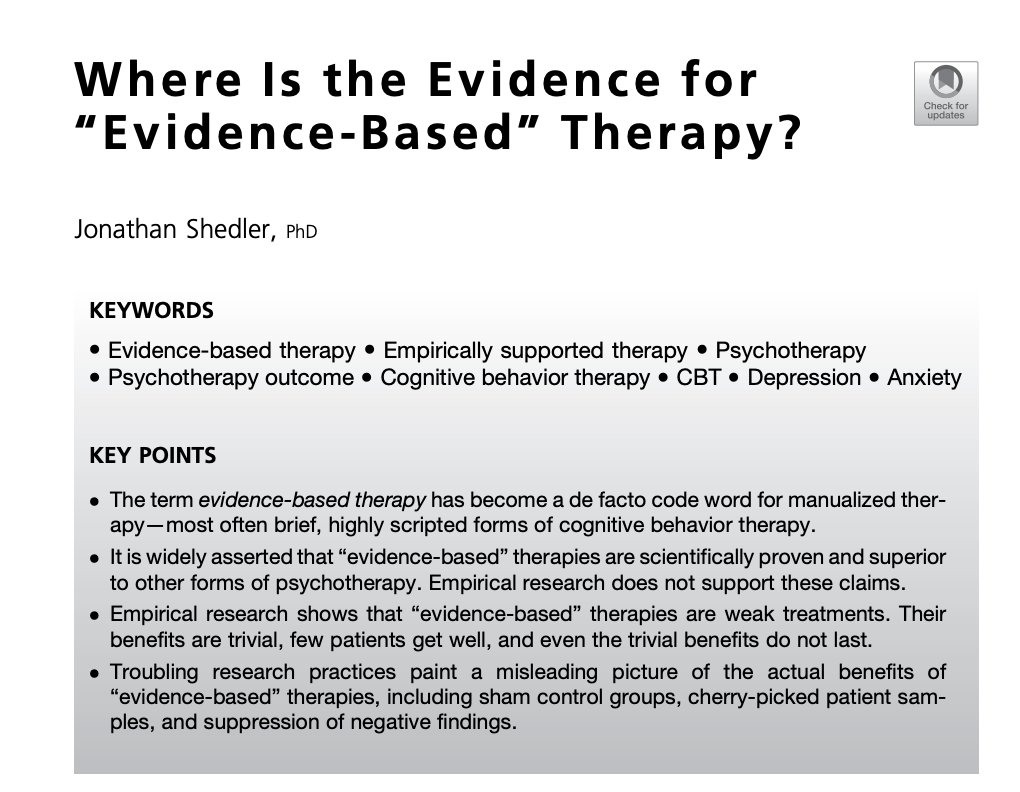
1/ Some in therapy world beat the drum about science & evidence. They point to research (RCTs) to claim their approach is superior
When you read the studies, it's clear they don't even pretend to compare the treatment to any other legit therapy. In fact, they do NOT put their
When you read the studies, it's clear they don't even pretend to compare the treatment to any other legit therapy. In fact, they do NOT put their
2/ claims to a scientific test
The claim is that their preferred therapy brand is more effective than other kinds of psychotherapy. But the studies don't compare their therapy to other legit therapy. They compare it to *doing nothing* (wait list) or to fake, sham therapy that
The claim is that their preferred therapy brand is more effective than other kinds of psychotherapy. But the studies don't compare their therapy to other legit therapy. They compare it to *doing nothing* (wait list) or to fake, sham therapy that
3/ is not intended to offer legit help—or even practiced by therapists in the real world
This sleight-of-hand goes on in plain site. They get away with it because few can critically read the primary sources
This is simply not "science"
It is marketing pretending to be science
This sleight-of-hand goes on in plain site. They get away with it because few can critically read the primary sources
This is simply not "science"
It is marketing pretending to be science
4/ Slowly and reluctantly, I came to the realization that the more drum beating about "science" and "evidence," the less likely the claims are ever put to a scientific test
I think they know how that would turn out
jonathanshedler.com/wp-content/upl…
I think they know how that would turn out
jonathanshedler.com/wp-content/upl…

• • •
Missing some Tweet in this thread? You can try to
force a refresh




